Tomato Paste vs Tomato Sauce: Reasonable Price, Great Purchase When it comes to cooking, tomatoes play a vital role in adding flavor, color, and depth to various dishes. Tomato-based products like tomato paste and tomato sauce are pantry staples worth exploring. While both are incredibly versatile ingredients, they possess distinct characteristics that can significantly impact the outcome of your culinary creations. In this article, we will delve into the differences between tomato paste and tomato sauce, their uses, and why they are considered reasonable purchases for any home-cooking enthusiast. Tomato Paste: Tomato paste is a concentrated form of tomatoes, typically made by cooking tomatoes for several hours and reducing them into a thick, rich, and flavorful paste. It is the essence of tomatoes, with a bold and intense taste that enhances the umami flavor in dishes. Tomato paste is highly regarded for its ability to add depth and complexity to sauces, stews, and soups. Uses: 1. Flavor Booster: Tomato paste acts as a concentrated flavor enhancer due to its high concentration of tomatoes. Adding a tablespoon or two of tomato paste can elevate the taste of sauces, gravies, and braises, imparting a savory and robust character to the dish. 2. Thickening Agent: With its dense and sticky consistency, tomato paste is often used as a thickening agent in recipes that require a smooth and velvety texture. It helps to enrich sauces, lending a desirable richness and body to dishes like pasta sauces, curry, and chili. 3. Base Ingredient: Tomato paste serves as an excellent base for creating homemade tomato sauces. By diluting the paste with water or stock, you can easily transform it into a sauce that suits your taste preferences and desired consistency. 4. Marinades and Dressings: The concentrated flavor of tomato paste makes it an ideal ingredient for marinades and salad dressings. It adds depth and tanginess to vinaigrettes and provides flavor balance in meat and vegetable marinades. Tomato Sauce: Tomato sauce, on the other hand, is a more liquefied form of tomatoes, primarily made from pureed or crushed tomatoes. It has a thinner consistency compared to tomato paste, with a milder flavor profile. Tomato sauce is commonly used as a base for many Italian, Mexican, and Mediterranean dishes. Uses:
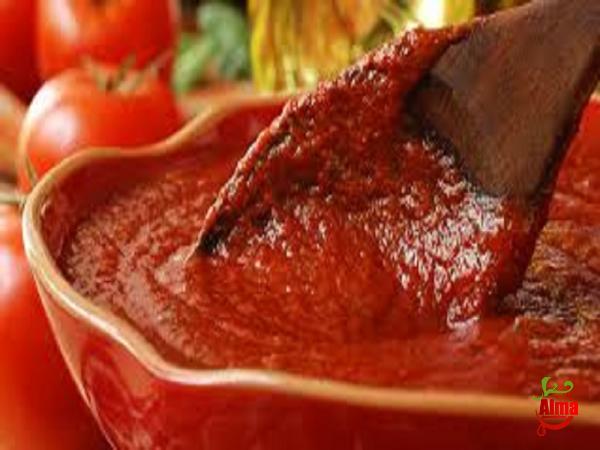
tomato paste
 Uses: 1. Versatile Base: Tomato sauce is often used as a base ingredient in various recipes such as pasta sauces, pizza toppings, and soups. Its smooth texture allows it to blend seamlessly into different dishes, providing a mellow and balanced tomato flavor. 2. Simmered Dishes: Tomato sauce is the go-to ingredient for making simmered dishes, including stews, braises, and casseroles. It adds a subtle sweetness and acidity while keeping the dish moist and flavorful. 3. Dipping Sauces: Tomato sauce serves as a classic accompaniment to dishes like mozzarella sticks, chicken tenders, and French fries. Its mild and tangy taste provides a refreshing contrast to fried or crispy foods. 4. Quick and Easy Meals: Tomato sauce can be the hero ingredient in simple and quick meals, such as marinara on pasta or as a topping on homemade pizza. Its convenience and versatility make it a time-saving solution for satisfying cravings in a hurry. Price Comparison: When it comes to cost, tomato paste is generally more affordable than tomato sauce. It is often sold in small cans or tubes, and a little can go a long way due to its concentrated nature. On the other hand, tomato sauce is commonly available in larger cans or bottles, but it usually costs more due to its higher water content and additional flavorings or seasonings present in some commercial varieties. Reasons for a Reasonable Purchase: 1. Shelf Life: Both tomato paste and tomato sauce have a relatively long shelf life. Tomato paste, due to its concentrated nature, can be stored for several months in the refrigerator after opening. Tomato sauce, usually canned or in a glass jar, has a shelf life of up to two years, making it suitable for stocking up in your pantry for future use. 2. Endless Culinary Possibilities: With tomato paste and tomato sauce, you can experiment with a wide range of recipes, from Italian classics like spaghetti Bolognese to spicy Mexican salsas. Their versatility allows you to explore different cuisines and create dishes with exciting flavors. 3. Health Benefits: Both tomato paste and tomato sauce are rich in lycopene, a powerful antioxidant known for its potential health benefits, including reducing the risk of certain cancers and promoting heart health. Additionally, they contain essential vitamins and minerals needed for a well-balanced diet.
Uses: 1. Versatile Base: Tomato sauce is often used as a base ingredient in various recipes such as pasta sauces, pizza toppings, and soups. Its smooth texture allows it to blend seamlessly into different dishes, providing a mellow and balanced tomato flavor. 2. Simmered Dishes: Tomato sauce is the go-to ingredient for making simmered dishes, including stews, braises, and casseroles. It adds a subtle sweetness and acidity while keeping the dish moist and flavorful. 3. Dipping Sauces: Tomato sauce serves as a classic accompaniment to dishes like mozzarella sticks, chicken tenders, and French fries. Its mild and tangy taste provides a refreshing contrast to fried or crispy foods. 4. Quick and Easy Meals: Tomato sauce can be the hero ingredient in simple and quick meals, such as marinara on pasta or as a topping on homemade pizza. Its convenience and versatility make it a time-saving solution for satisfying cravings in a hurry. Price Comparison: When it comes to cost, tomato paste is generally more affordable than tomato sauce. It is often sold in small cans or tubes, and a little can go a long way due to its concentrated nature. On the other hand, tomato sauce is commonly available in larger cans or bottles, but it usually costs more due to its higher water content and additional flavorings or seasonings present in some commercial varieties. Reasons for a Reasonable Purchase: 1. Shelf Life: Both tomato paste and tomato sauce have a relatively long shelf life. Tomato paste, due to its concentrated nature, can be stored for several months in the refrigerator after opening. Tomato sauce, usually canned or in a glass jar, has a shelf life of up to two years, making it suitable for stocking up in your pantry for future use. 2. Endless Culinary Possibilities: With tomato paste and tomato sauce, you can experiment with a wide range of recipes, from Italian classics like spaghetti Bolognese to spicy Mexican salsas. Their versatility allows you to explore different cuisines and create dishes with exciting flavors. 3. Health Benefits: Both tomato paste and tomato sauce are rich in lycopene, a powerful antioxidant known for its potential health benefits, including reducing the risk of certain cancers and promoting heart health. Additionally, they contain essential vitamins and minerals needed for a well-balanced diet.
Specifications of tomato paste
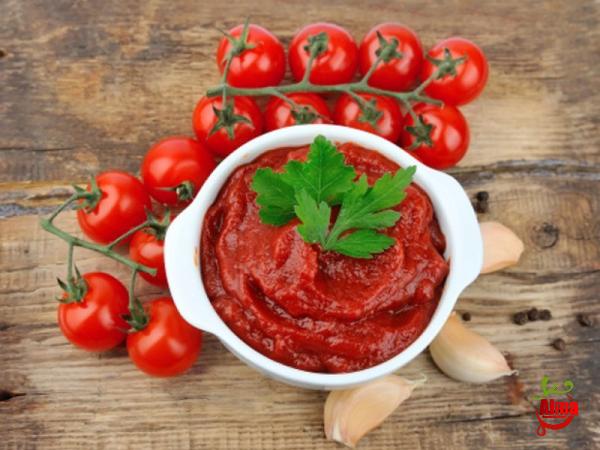 4. Cost-effectiveness: Considering their long shelf life and versatile applications in cooking, tomato paste and tomato sauce are reasonable purchases. Small amounts go a long way, providing flavor and depth to dishes, and allowing you to stretch your ingredients and keep your overall food costs down. Conclusion: When it comes to Tomato Paste vs Tomato Sauce, both have their unique characteristics and culinary uses. Tomato paste is a concentrated essence of tomatoes, ideal for adding deep flavors to various dishes. Tomato sauce, on the other hand, has a more liquid consistency, serving as a versatile base ingredient. Both options are reasonably priced and offer endless cooking possibilities, making them excellent purchases for any home cook. So, whether you choose the intense richness of tomato paste or the versatile tang of tomato sauce, they are sure to enhance your culinary creations and satisfy your taste buds.Title: Tomato Paste vs Tomato Sauce: Reasonable Price, Great Purchase 1. Culinary Applications and Versatility Both tomato paste and tomato sauce are incredibly versatile ingredients that can be used in a wide range of culinary applications. Tomato paste, with its concentrated and intense flavor, is perfect for dishes that require a bold tomato taste. It is commonly used in recipes such as pasta sauces, stews, soups, and marinades. On the other hand, tomato sauce is more versatile in terms of flavor profile and consistency. It can be used as a base for various cuisines, including Italian, Mexican, and Mediterranean dishes. From classic marinara to flavorful dips and dressings, tomato sauce offers endless possibilities in the kitchen. 2. Storage and Shelf Life One of the reasons why tomato paste and tomato sauce are great purchases is their long shelf life. Tomato paste, due to its concentrated nature, can be stored for several months in the refrigerator after opening. It is often sold in small cans or tubes, allowing you to use only what is needed for a particular recipe while keeping the rest fresh. Tomato sauce, typically available in larger cans or bottles, has a shelf life of up to two years when unopened, making it a convenient pantry staple for any home cook. 3. Flavor Enhancement Both tomato paste and tomato sauce can greatly enhance the flavor of your dishes. Tomato paste, with its high concentration of tomatoes, adds depth, richness, and umami to recipes. It acts as a flavor booster, intensifying the taste of sauces, gravies, and braises. On the other hand, tomato sauce provides a milder and balanced tomato flavor that can complement a wide range of ingredients. Its smooth texture allows it to blend seamlessly with other flavors, making it an ideal base ingredient for various dishes. 4. Texture and Consistency When it comes to texture and consistency, tomato paste and tomato sauce differ significantly. Tomato paste has a thick and sticky consistency due to its concentrated nature, making it suitable for recipes that require a thickening agent or a more robust flavor. On the other hand, tomato sauce has a more liquid consistency, making it ideal for dishes that require a smoother texture or a base ingredient that blends easily with other flavors.
4. Cost-effectiveness: Considering their long shelf life and versatile applications in cooking, tomato paste and tomato sauce are reasonable purchases. Small amounts go a long way, providing flavor and depth to dishes, and allowing you to stretch your ingredients and keep your overall food costs down. Conclusion: When it comes to Tomato Paste vs Tomato Sauce, both have their unique characteristics and culinary uses. Tomato paste is a concentrated essence of tomatoes, ideal for adding deep flavors to various dishes. Tomato sauce, on the other hand, has a more liquid consistency, serving as a versatile base ingredient. Both options are reasonably priced and offer endless cooking possibilities, making them excellent purchases for any home cook. So, whether you choose the intense richness of tomato paste or the versatile tang of tomato sauce, they are sure to enhance your culinary creations and satisfy your taste buds.Title: Tomato Paste vs Tomato Sauce: Reasonable Price, Great Purchase 1. Culinary Applications and Versatility Both tomato paste and tomato sauce are incredibly versatile ingredients that can be used in a wide range of culinary applications. Tomato paste, with its concentrated and intense flavor, is perfect for dishes that require a bold tomato taste. It is commonly used in recipes such as pasta sauces, stews, soups, and marinades. On the other hand, tomato sauce is more versatile in terms of flavor profile and consistency. It can be used as a base for various cuisines, including Italian, Mexican, and Mediterranean dishes. From classic marinara to flavorful dips and dressings, tomato sauce offers endless possibilities in the kitchen. 2. Storage and Shelf Life One of the reasons why tomato paste and tomato sauce are great purchases is their long shelf life. Tomato paste, due to its concentrated nature, can be stored for several months in the refrigerator after opening. It is often sold in small cans or tubes, allowing you to use only what is needed for a particular recipe while keeping the rest fresh. Tomato sauce, typically available in larger cans or bottles, has a shelf life of up to two years when unopened, making it a convenient pantry staple for any home cook. 3. Flavor Enhancement Both tomato paste and tomato sauce can greatly enhance the flavor of your dishes. Tomato paste, with its high concentration of tomatoes, adds depth, richness, and umami to recipes. It acts as a flavor booster, intensifying the taste of sauces, gravies, and braises. On the other hand, tomato sauce provides a milder and balanced tomato flavor that can complement a wide range of ingredients. Its smooth texture allows it to blend seamlessly with other flavors, making it an ideal base ingredient for various dishes. 4. Texture and Consistency When it comes to texture and consistency, tomato paste and tomato sauce differ significantly. Tomato paste has a thick and sticky consistency due to its concentrated nature, making it suitable for recipes that require a thickening agent or a more robust flavor. On the other hand, tomato sauce has a more liquid consistency, making it ideal for dishes that require a smoother texture or a base ingredient that blends easily with other flavors.
buy tomato paste
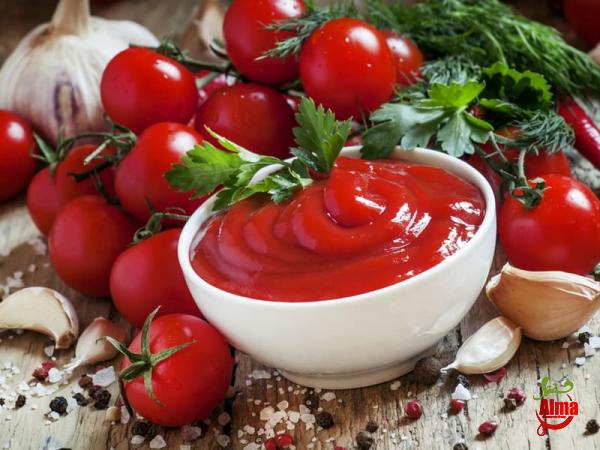 5. Cost-effectiveness Tomato paste is generally more affordable than tomato sauce. Due to its concentrated form, a small amount of tomato paste can go a long way in terms of enhancing the flavor of your dishes. It is sold in small cans or tubes, providing convenience and cost-effectiveness. On the other hand, tomato sauce is often available in larger cans or bottles, but it usually costs more due to its higher water content and additional flavorings or seasonings present in some commercial varieties. 6. Homemade vs. Store-bought While both tomato paste and tomato sauce are widely available in stores, some home cooks prefer making their own versions. Homemade tomato paste allows for complete control over the flavor and consistency, and it can be made using fresh tomatoes when they are in abundance. Homemade tomato sauce can also be customized to suit personal preferences, using fresh or canned tomatoes, herbs, and seasonings. Making tomato paste or tomato sauce from scratch can be a fulfilling and cost-effective option for those who enjoy the process of cooking from scratch. 7. Considerations for Health-conscious Consumers Both tomato paste and tomato sauce offer health benefits as they are rich in lycopene, an antioxidant that has been linked to reduced risks of certain cancers and heart disease. Additionally, they contain essential vitamins and minerals, including vitamin C and potassium. However, it is important to note that commercially prepared tomato sauce may contain added sugars, sodium, or preservatives. Health-conscious consumers may opt for low-sodium or no-added-sugar options, or consider making their own tomato sauce using fresh ingredients to maintain control over the nutritional content. 8. Culinary Tips and Tricks When using tomato paste, it is recommended to add it early in the cooking process to allow the flavors to develop and meld with other ingredients. Additionally, it is recommended to dilute tomato paste with water or stock to achieve the desired consistency and balance the intensity of the flavor. When using tomato sauce, it is important to taste and adjust the seasoning, as some commercial varieties may already contain added flavors or seasonings. Experimentation is key when using tomato paste or tomato sauce, as they can be adjusted to suit personal taste preferences and the specific requirements of each recipe. 9. Considerations for Dietary Restrictions Tomato paste and tomato sauce are generally considered suitable options for individuals following various dietary restrictions. They are naturally gluten-free, making them safe for individuals with gluten intolerance or celiac disease. However, it is essential to read labels carefully to ensure that there are no added ingredients that may be restricted on certain dietary plans. For those following a vegan or vegetarian diet, tomato paste and tomato sauce are excellent sources of flavor and nutrients. However, individuals with specific dietary concerns should always check the ingredient list to ensure that the products meet their specific requirements. 10. Conclusion: When it comes to tomato paste vs tomato sauce, both options offer unique characteristics and culinary benefits. Tomato paste provides concentrated flavor and richness, while tomato sauce offers versatility and convenience. Both options are reasonably priced, which makes them great purchases for any home cook. By understanding the differences between tomato paste and tomato sauce and harnessing their unique properties, you can elevate your cooking and create flavorful dishes that satisfy every time.
5. Cost-effectiveness Tomato paste is generally more affordable than tomato sauce. Due to its concentrated form, a small amount of tomato paste can go a long way in terms of enhancing the flavor of your dishes. It is sold in small cans or tubes, providing convenience and cost-effectiveness. On the other hand, tomato sauce is often available in larger cans or bottles, but it usually costs more due to its higher water content and additional flavorings or seasonings present in some commercial varieties. 6. Homemade vs. Store-bought While both tomato paste and tomato sauce are widely available in stores, some home cooks prefer making their own versions. Homemade tomato paste allows for complete control over the flavor and consistency, and it can be made using fresh tomatoes when they are in abundance. Homemade tomato sauce can also be customized to suit personal preferences, using fresh or canned tomatoes, herbs, and seasonings. Making tomato paste or tomato sauce from scratch can be a fulfilling and cost-effective option for those who enjoy the process of cooking from scratch. 7. Considerations for Health-conscious Consumers Both tomato paste and tomato sauce offer health benefits as they are rich in lycopene, an antioxidant that has been linked to reduced risks of certain cancers and heart disease. Additionally, they contain essential vitamins and minerals, including vitamin C and potassium. However, it is important to note that commercially prepared tomato sauce may contain added sugars, sodium, or preservatives. Health-conscious consumers may opt for low-sodium or no-added-sugar options, or consider making their own tomato sauce using fresh ingredients to maintain control over the nutritional content. 8. Culinary Tips and Tricks When using tomato paste, it is recommended to add it early in the cooking process to allow the flavors to develop and meld with other ingredients. Additionally, it is recommended to dilute tomato paste with water or stock to achieve the desired consistency and balance the intensity of the flavor. When using tomato sauce, it is important to taste and adjust the seasoning, as some commercial varieties may already contain added flavors or seasonings. Experimentation is key when using tomato paste or tomato sauce, as they can be adjusted to suit personal taste preferences and the specific requirements of each recipe. 9. Considerations for Dietary Restrictions Tomato paste and tomato sauce are generally considered suitable options for individuals following various dietary restrictions. They are naturally gluten-free, making them safe for individuals with gluten intolerance or celiac disease. However, it is essential to read labels carefully to ensure that there are no added ingredients that may be restricted on certain dietary plans. For those following a vegan or vegetarian diet, tomato paste and tomato sauce are excellent sources of flavor and nutrients. However, individuals with specific dietary concerns should always check the ingredient list to ensure that the products meet their specific requirements. 10. Conclusion: When it comes to tomato paste vs tomato sauce, both options offer unique characteristics and culinary benefits. Tomato paste provides concentrated flavor and richness, while tomato sauce offers versatility and convenience. Both options are reasonably priced, which makes them great purchases for any home cook. By understanding the differences between tomato paste and tomato sauce and harnessing their unique properties, you can elevate your cooking and create flavorful dishes that satisfy every time.
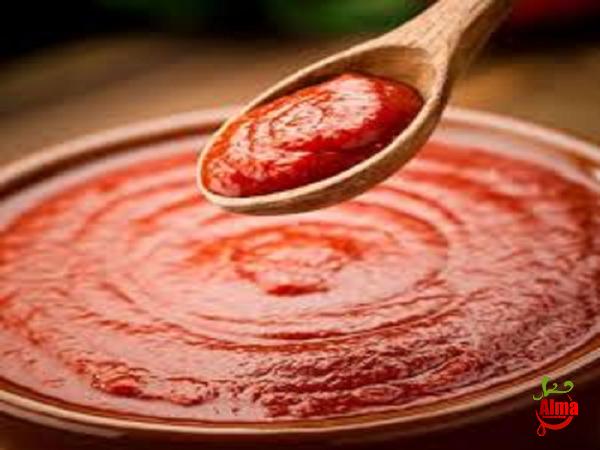
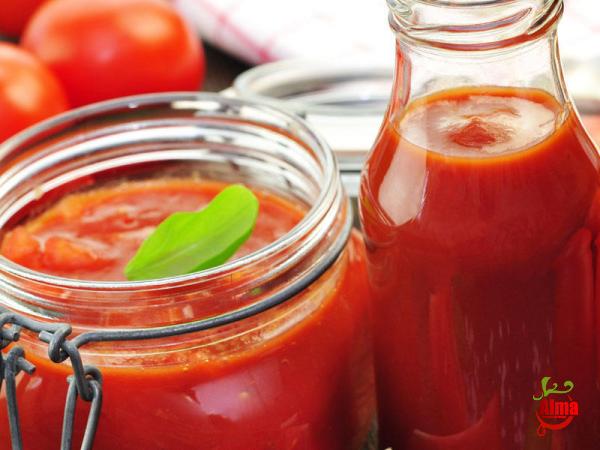
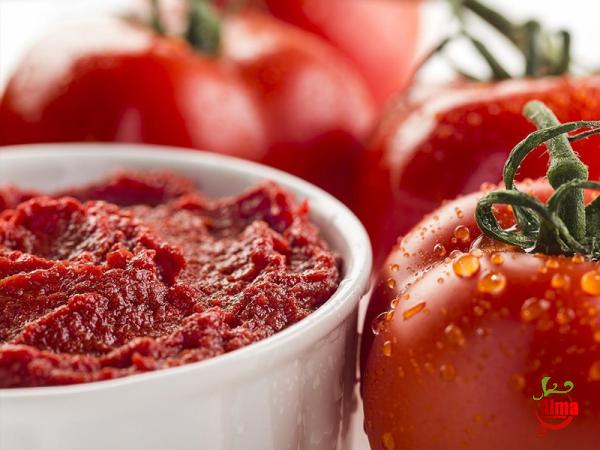
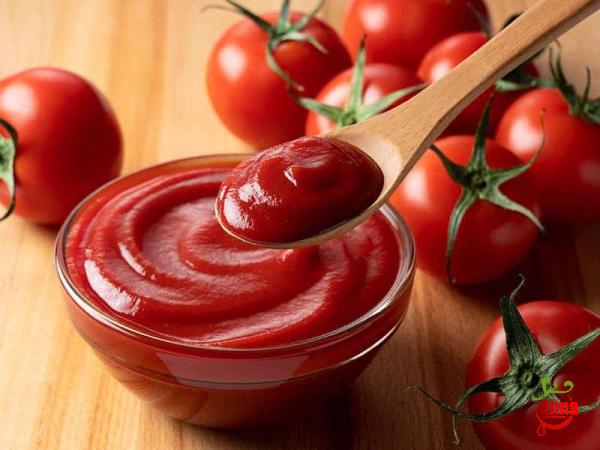



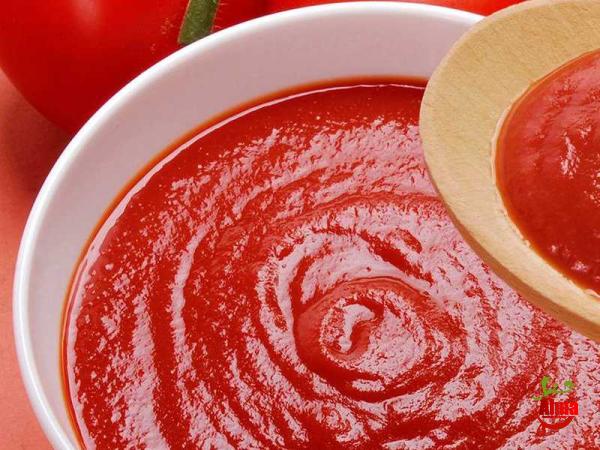
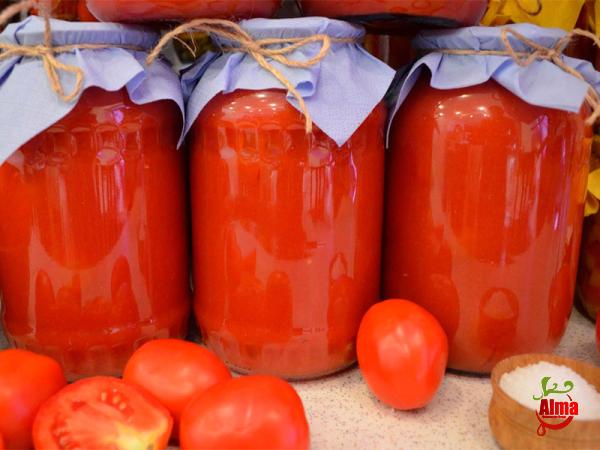
Your comment submitted.